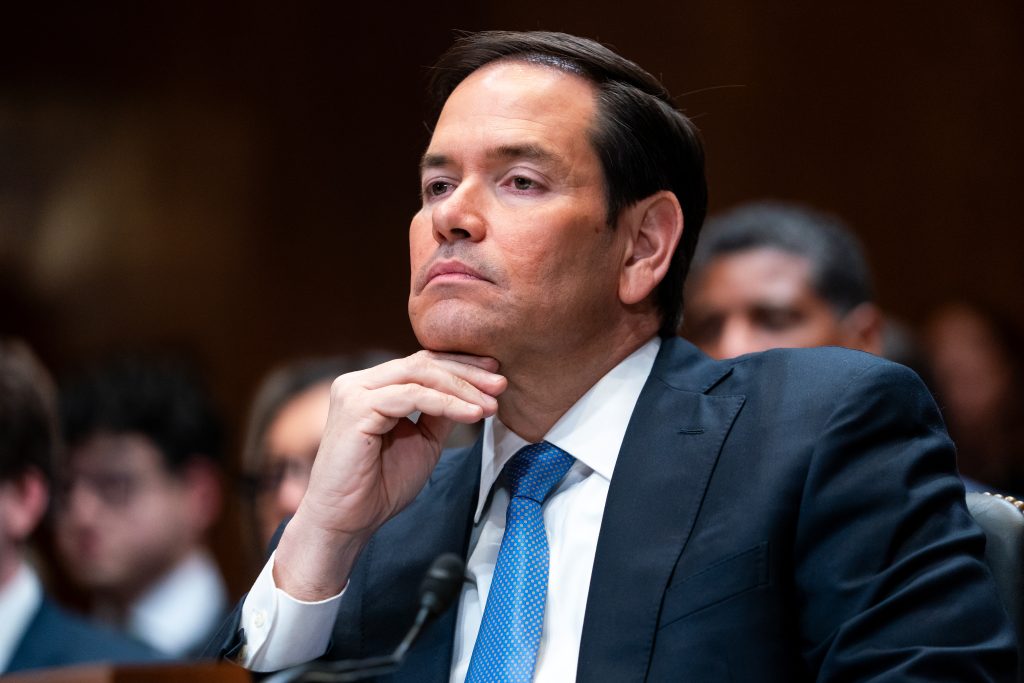
THE Trump administration’s move to revoke visas for Chinese students is upending Anqi Dong’s dream of a US education even before it starts.
The 30-year-old Shanghai lawyer, who applied to a PhD program at the University of Texas at Dallas in January, is abandoning her plans, saying bad news for foreign students seems to be piling up by the day.
“Everything is looking just too uncertain right now in America,” she said. “I’m now considering programs in Finland and Norway, which I never actually thought about before. These are rich and stable places.”
Chinese students have found themselves at the sharp end of the Trump administration’s push for greater scrutiny of foreigners at American universities. Secretary of State Marco Rubio said Wednesday their visas would be “aggressively” revoked, including for students with connections to the Communist Party or studying in critical fields. Future applications from China and Hong Kong will also face heightened scrutiny, he said.
Taking action against people with links to the Communist Party casts a wide net, given the role it plays in the lives of Chinese people and institutions, including universities. While just under 100 million people are party members, its reach is so pervasive that the number of those who can be said to have ties with it runs into multiples of that figure.
The moves are forcing Chinese students to seek alternatives, even as some education consultants urge patience in case the US policy shifts. Zhou Huiying, founder of Shanghai-based consultancy Lideyouwei Education Technology, said at least 30% of her clients have either canceled plans to study in the US or are applying to schools in places like Australia, the UK and Singapore as back ups. She believes that ratio may increase to about 50% if the Trump administration announces new restrictions on Chinese students.
Typically, families that target America for higher education would only focus on US colleges and rarely look at universities in other nations, Zhou said, but now many are having second thoughts.
“The policies have been very capricious and really got on clients’ nerves,” Zhou said. “Some families, where the parents are Communist Party members working for the government, are pretty concerned and now abandoning the US as an option.”
Confusion Prevails
The visa restrictions extend a broader crackdown underway since President Trump returned to the White House. He’s pledged to ban international students at Harvard University, escalating his campaign to force changes at the elite institution. Earlier this week, Rubio ordered US embassies worldwide to stop scheduling interviews for foreign student visas.
For now, the situation is chaotic for students. While some education advisers suggest looking to other countries, others say ride out the bluster, others still have differing views on just how broad the crackdown will be. But just about all agree that there’s a greater threat than before as tensions mount between the two nations in Trump’s second term.
Fangzhou Jiang, a Chinese student at Harvard Kennedy School and co-founder of college consulting company Crimson Education, said he is trying his best to remain optimistic. He said that after receiving the Harvard news last week, he has been mentally preparing for the worst. With one more semester left in his program, he has decided to keep his lease and not make any rash decisions. At Harvard, Jiang has been a model student — serving as a the Vice President of the Kennedy School Student Government. Still, he knows he has to be cautious.
“I’m still cautious because number one, I tick both boxes at the moment, right? Both Chinese and Harvard,” he said. “I’ve got some big targets on my back. So I don’t want to be blindly optimistic.”
Trump has been throwing up successive roadblocks for Chinese students since he was elected the first time. His administration announced in 2020 that the Confucius Institute US Center, a program funded by the Chinese government that’s dedicated to teaching Chinese language and culture in the US, had to register as a “foreign mission.” That made it subject to administrative requirements similar to those for embassies and consulates. Later that year, the visas of more than 1,000 Chinese students and researchers were revoked.
Some students are sticking with their US study plans, betting that Trump will eventually change course, said Dennis Huang, co-founder of Dream Education, which provides high-end overseas education services.
“Most of my clients are growing increasingly insusceptible toward the ever-changing policies and people are mentally prepared for the potential hiccups,” Huang said. “It’s not Trump’s first presidential tenure and people have grown used to his fickle style.”
Brian Wang, founder and chief executive officer of Blueprint, a global admissions consulting firm in Shanghai, thinks the restrictions will be limited to a subset of students who are targeted based on “perceived political leanings,” or due to their links to sensitive academic subjects. Students already in the US should be “vigilant about their behavior, including posts on social media,” he said.
The number of Chinese students in the US declined 4% last year to about 277,000 amid increased tension between the two nations. Yet Chinese students are still the second-largest international group, trailing only India. In the 2023-2024 year, India and China accounted for about half of the 1.1 million global students in the country, according to the Institute of International Education.
Dong, the Shanghai lawyer, doesn’t expect to be joining those ranks anytime soon.
The visa woes “impact not only school life, but also plans for after graduation,” she said. “It is highly likely that new rules would also negatively affect potential jobs.” –BLOOMBERG
The post Chinese students ditch US plans as Trump vows crackdown on visas appeared first on The Malaysian Reserve.
